| We didn't go into town on Canada Day despite the
concert and the fireworks. Most of the museums and Parliament Buildings were
closed. But we went in the following day early enough to get tour tickets.
This is the main entrance, although we actually came out of it. The tour entrance
is underneath and you have to go in with your group and pass through the
metal detectors as in an airport. They aren't anal about it though. A nice
Canadian balance. The archway carving is pretty impressive. Mind you the
buildings are less than 100 years old so the weather damage is less. | 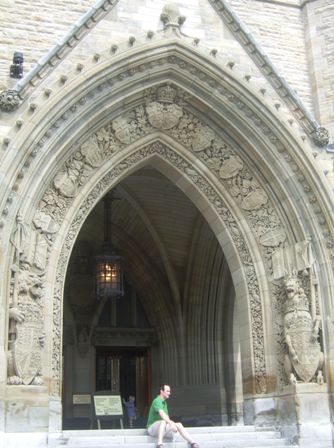 |
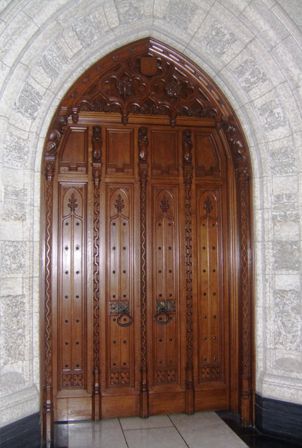 |
The carving inside is equally ornate and the doors to the main chambers are
very impressive. We've done Doors of Ireland and Doors of France so I don't
plan one of Canada. This is the entrance to the House of Commons. |
| I do like all the coats of arms over the doorways, however I've no idea what they all mean. These arms will have been
issued in London since they pre-date Canada's own Heralds. |  |
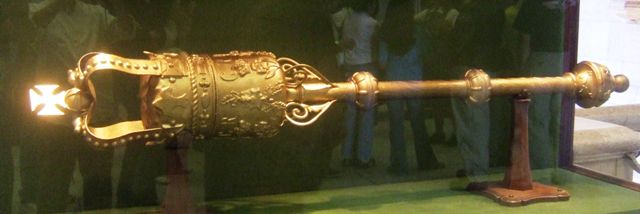 |
There are lots of similarities between the parliaments both in structure and
in ritual. This is the mace, the symbol of the Sovereign's power. |
| This is the main chamber with the Speaker's chair at
the far end. The prime minister sits in the 11th chair in from that end
since that used to be in the middle and he is supposed to carry the country with
him. However the number of members' seats has had to be increased as
Canada's population has grown so he is no longer in the middle. There are
now 308 representatives elected on the basis of
population. | 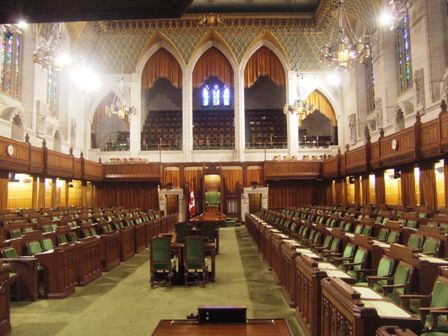 |
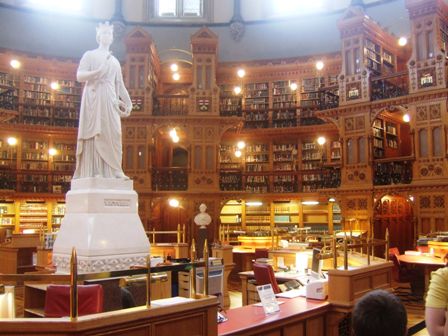 |
This is the library on the inside with a huge marble statue of Victoria
looking down. The library (and its thousands of rare volumes) was saved when
the main buildings burned because the librarian had the presence of mind to
close the steel doors which separate it from the main building. Six people
died in the fire. There have been other fires. In 1849 a loyalist mob burned
down the legislature and destroyed all but 200 of 12,000 books. In 1952 a
fire broke out in the library itself causing extensive smoke damage. |
| This is the Senate chamber or upper house. There are
huge paintings on the walls to remind the senators of major events in
history. There are 105 senators appointed by the Governor General (the
representative of the Crown) on the recommendation of the prime minister.
The monarch's throne is the central red chair at the far end. Parliament is
opened in the same way as in Britain - members from the Commons are summoned
to attend the monarch (or the Governor General) in the Senate and hear a
speech which sets out the government's plans for the next session. | 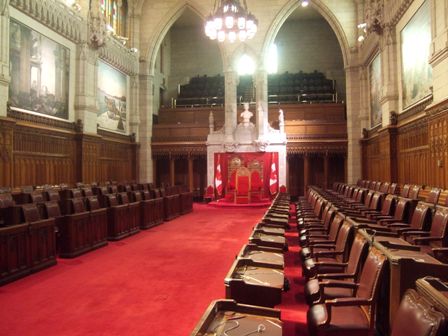 |
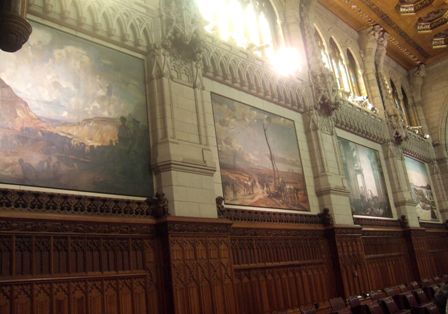 |
We only got into the first few feet of the chamber and so it was hard to see
what the paintings all were although they are all WWI scenes. |
| The ante-chamber is full of huge paintings of the
sovereigns as here with George V in full regalia. |  |
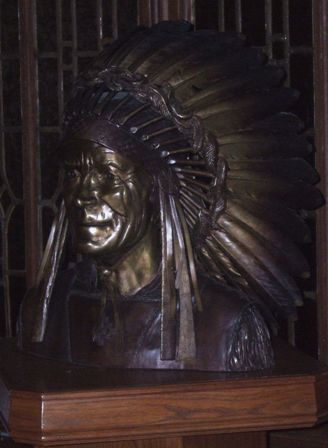 |
The bronze bust at the entrance to the Senate chamber is that of James
Gladstone (or Akay-na-muka, meaning "Many guns") the first aboriginal
member of the Canadian senate who served from 1958-1970. He was a Cree by
birth but was brought up on the Blackfoot reservation. This made him
acceptable to both nations. He was appointed to the Senate by John
Diefenbaker in 1958 two years before the aboriginals were given the vote in
Canada. |
| After the tour we went up the clock tower now
known as the 'Peace Tower'. It was dedicated in 1927 and features the first
inclined elevator in Canada. The observation deck below the clock
offers spectacular views over the city as
this one looking west over the Ottawa River and the bridges across to Hull. | 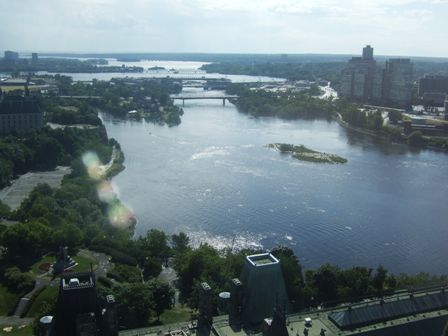 |
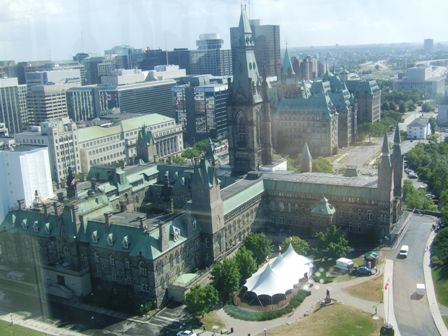 |
This is the west wing of the parliament buildings with other important
buildings like the courts of justice behind. You can see how high up we are. |
| Looking south you can see another government building
in the forefront with the commercial heartland
around it. | 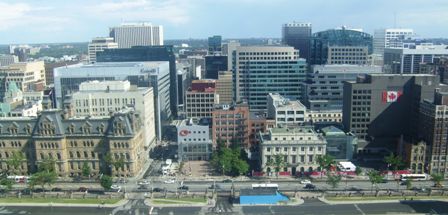 |
 |
The East wing with more of the city behind. |
| Looking to the northeast you have the catholic
cathedral the other side of the park. Ottawa is a very green city with
lots of trees but also a comprehensive network of cycle routes and bus lanes to move the people. | 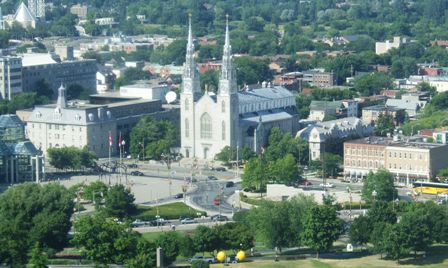 |
 |
We mustn't forget to look up where you can see the clock faces. The clock is
immediately above the observation deck and the 53 bell carillion is below.
It covers 4½ octaves and weighs a total
of 66 tons. |
| At the base of the 92m Peace tower are more examples of
the ornate carving in the stone pillars. |  |
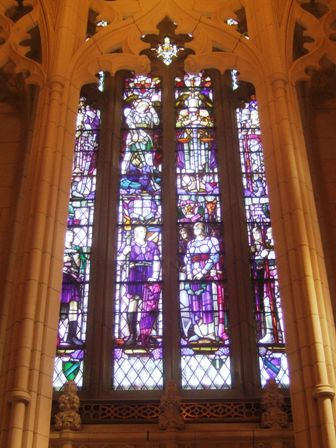 |
Off to one side is a small chapel and memorial room with stained glass
windows showing soldiers through the ages. |
| The books of remembrance list all the names of
Canadian service men and women killed in action. There are separate books
for each war including the recent ones. The pages are turned each day. |  |
|